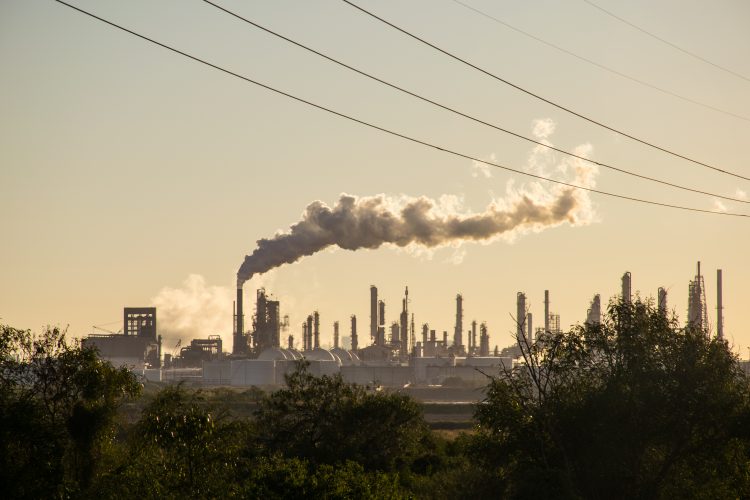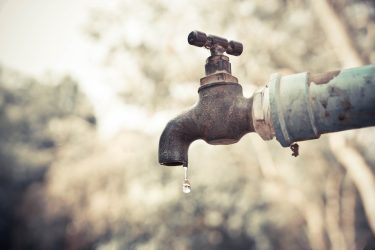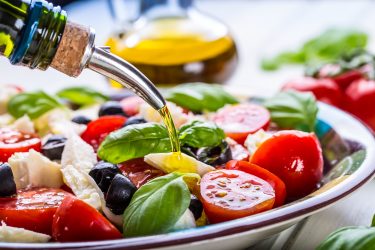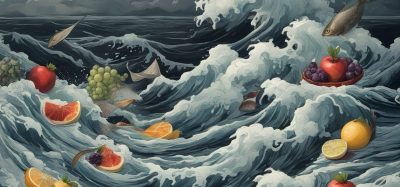Tackling global food and water challenges through international collaboration
- Like
- Digg
- Del
- Tumblr
- VKontakte
- Buffer
- Love This
- Odnoklassniki
- Meneame
- Blogger
- Amazon
- Yahoo Mail
- Gmail
- AOL
- Newsvine
- HackerNews
- Evernote
- MySpace
- Mail.ru
- Viadeo
- Line
- Comments
- Yummly
- SMS
- Viber
- Telegram
- Subscribe
- Skype
- Facebook Messenger
- Kakao
- LiveJournal
- Yammer
- Edgar
- Fintel
- Mix
- Instapaper
- Copy Link
Posted: 24 February 2020 | SweeLee Yap | No comments yet
Members of the International Food and Water Research Centre (IFWRC) Scientific Advisory Panel discuss current challenges the food industry is facing, including climate change and food fraud, as well as key trends and the role of international collaboration between industry, academia, government and non-government organisations.


The delicate balance between the human population and resource availability is under threat, due to its ever-increasing size – a fact that has been well-reported for many years. By 2050, the global population will increase by 28 percent, and demand for food will be 60 to 98 percent higher than it is today. It is also estimated that by 2025, two-thirds of the world’s population will face water shortages, and that freshwater contamination will cost the US $4.3 billion per year.
Awareness surrounding climate change and increasing consumer pressure to focus on the industry’s environmental impact is placing the spotlight on sustainability. While governments, manufacturers and packaging companies are making commitments to improve the circularity of packaging and reduce plastic waste, other factors such as environmental pollution, urbanisation, soil erosion, and food integrity play a role in sustainability too.
Nutrition and wellness are also key trends in the food industry, with diversifying fields of research. For example, Mintel identified ‘healthy ageing’ as one of its 2019 global food and drink trends,1 driven by the growing proportion of the population aged 60 and over. This presents an opportunity for manufacturers to address age-related health implications and develop products to promote healthy ageing. Another example of novel research is the study of how food and drink affects the circadian rhythm, which impacts overall health.
Waters’ International Food and Water Research Center (IFWRC) was opened in Singapore to further innovative research in the food and water industries, by creating a platform for both industry and academia to solve their challenges. One of the primary advantages offered by the IFWRC is timely access to state-of-the-art instrumentation along with on-site staff specialists. This helps to facilitate and fast track projects that researchers are otherwise unable to resource in their own organisation’s infrastructure. A Scientific Advisory Panel (SAP), comprised of experts from academic and industrial fields, is responsible for selecting which projects should go ahead, prioritising those that are deemed to contribute to wider industry goals.
There are two things that everyone on this planet has in common, regardless of age, gender or race: the right to access safe nutritious food and clean water. Whether we’re talking about regulators, contract testing organisations, private industry or academia, everyone is working together to advance the cause of food and water security around the world.
Trends and challenges
Although the SAP guides projects undertaken in the lab from a diverse range of focus areas, key fields include:
- Food authenticity and fraud
- Food nutrition and quality
- Emerging contaminants in the environment or in food/water
- Food safety
- Sustainability and capacity building
- Future foods research.


By 2025, two-thirds of the world’s population will face water shortages
Climate change is considered one of the most significant challenges facing the food and water industries worldwide. Disruption to the global food supply chain caused by the increasing frequency and strength of natural disasters, such as hurricanes, droughts and floods, can be considerable. Future‑proofing the world’s food and water supply is a high priority, and projects at the IFWRC investigate solutions to sustainability issues, using cutting‑edge science and technology. For example, supply chain inefficiencies lead to significant food waste across the globe. Manufacturers and technology companies are looking for methods to repurpose food waste into new products, such as okara developed from soybean waste. Sophisticated quadrupole time-of-flight (QTOF) mass spectrometry (MS) technology at the IFWRC is enabling researchers to conduct non targeted analysis on okara prior to fermentation, to identify compounds of interest for progression in the fermentation process. Researchers at Waseda University, Japan, and Nanyang Technological University, Singapore, have developed this work in collaboration with scientists in IFWRC by investigating the potential of fermented okara as an anti-diabetes food using ultra performance liquid chromatography tandem MS (UPLC-MS/MS) for metabolomics analyses. This collaborative approach allows researchers to corroborate their findings to reach conclusions with wide-reaching benefits.
IFWRC scientific advisory panel
Professor Christopher Elliott, Faculty Pro-Vice-Chancellor, School of Biological Sciences, Director of the Institute for Global Food Security, Queens University Belfast, Ireland.
Dr Gaud Dervilly-Pinel, Scientific Advisor, The Nantes-Atlantic National College of Veterinary Medicine, Food Science and Engineering, France.
Dr Abigail Stevenson, Director, Mars Global Food Safety Center, Beijing, China.
Clare Menezes, Global Director of Food Integrity, Global Quality & Food Safety Center of Excellence, McCormick & Company, Inc.
Dr Benjamin Smith, Director, Innovations in Food and Chemical Safety Programme, Agency for Science, Technology and Research (A*STAR), Nanyang Technological University, Singapore.
Professor Ong Choon Nam, Professor at the School of Public Health, National University of Singapore (NUS).
Measuring contaminants in the food chain is another high priority for the industry. Ensuring food safety by accurately measuring chemical hazards, such as persistent organic pollutants (POPs), heavy metals and hormones, is compounded by the complex matrices of environmental and food samples, and the trace levels of these contaminants. Analytical instrumentation must, therefore, be highly sensitive, selective for unambiguous identification, versatile and accurate. Targeted MS approaches, such as high resolution mass spectrometry (HRMS), ion mobility MS and atmospheric pressure gas chromatography (APGC), enable the identification and measurement of known contaminants, while non-targeted approaches shed light on emerging contaminants and biomarkers. New risks may be introduced by new industrial processes, or possibly by climate change. Rapid evaporative ionisation MS is one technique being evaluated for non-targeted analysis at IFWRC.
One of the biggest challenges facing the food industry is around globalisation and the complexity of the food supply chain.
“One of the more significant trends we see is non-targeted screening, so we can enlarge the number of compounds we monitor at once. There are no current analytical guidelines for this, so harmonising practices to validate such technologies is a real challenge. This drives our role on the Scientific Advisory Board, as there are often no guidelines for proposed experiments, so our critical review is important,” said Dr Gaud Dervilly-Pinel, Scientific Advisor at LABERCA.
Food fraud is another important challenge that projects supported by the IFWRC aim to solve. Food fraud is estimated to cost the global food industry $30-40 bn per year.
There is a significant link between many of the food trends IFWRC tackles, including sustainability, globalisation and supply chain complexity, and food authenticity. From the perspective of economically-motivated adulteration, this is costly not only for revenue, but also in terms of consumer trust. Access to state-of-the-art instrumentation is crucial to enable the identification of adulterated food samples at the earliest opportunity.
Optimising global connections
Singapore is considered a central hub of innovation in Asia, and the rapid growth and investment from the Singapore Government in food and water security make this nation an ideal location for the IFWRC. The expanding talent pool in Singapore and the availability of governmental and non-governmental agencies enable the IFWRC to become a centre of excellence for food and water safety research. This location allows the centre to act as an international collaboration link between the east and west. The IFWRC also provides an opportunity for food and water industry stakeholders to communicate their technological needs, to inform the future direction of analytical instrumentation innovation and ensure developments are fit-for-purpose, and solve the most poignant challenges in the field. This is the main long-term goal of the IFWRC.


Food fraud is estimated to cost the global food industry $30-40 billion per year, with olive oil among the top 10 products most at risk of adulteration
Opening up dialogue between academia and industry is a crucial step that enables both parties to take research from bench to practical day-to-day applications. One key trend the IFWRC addresses is providing rapid testing solutions, as speed of testing is a common challenge in food supply chains.
“One of the biggest challenges facing the food industry is around globalisation and the complexity of the food supply chain. Many of these integrity issues overlap, whether it’s availability of food, sustainability, or the risk of food fraud. Fostering collaborations that consider all of these integrity principles collectively provides an opportunity to discuss and prioritise, which is a real advantage”, commented Clare Menezes, Global Director of Food Integrity at McCormick & Co.
Role of collaboration
Many members of the SAP joined IFWRC for the mutual benefits of working with collaborative enterprises. Those interested in scientific research to address the greatest challenges facing food safety and the broad area of food security, benefit from industry knowledge of supply chains gained from working with food manufacturers.
“The role of the panel is to give scientific advice, and because we’re an eclectic mix of people from different scientific backgrounds, whether from academia like me, or industry, we can really establish the best use of a facility like IFWRC,” explained Chris Elliott, Professor of Food Safety and founder of the Institute for Global Food Security at Queen’s University Belfast.
From the point of view of industry, collaboration with academia and often technology companies is essential. Including non-government organisations (NGOs) and government organisations in the partnership promotes an environment of shared responsibility for addressing the key food industry challenges.
Continuing innovation
Starting now and feeding into future innovation, companies are developing products with a more social mindset, by assessing the broader picture through types of technologies and individual approaches. The IFWRC’s scientific panel, in part, determines the future direction of research by providing input to projects that are going to have a societal impact, rather than to further one company’s goals.
By 2050, the global population will increase by 28 percent, and demand for food will be up to 98 percent higher than it is today.
“In two or three years’ time I see the IFWRC having an impact by changing how people work together in the analytical sciences,” said Benjamin Smith, Director of Innovations in Food and Chemical Safety Program at A* STAR. “Platforms like the IFWRC can help further the interactions between regulators, food industry and academic scientists, leading to improved outcomes for consumers.”
The facilities at the IFWRC and industry knowledge of the panel not only benefit food and water experts, but the next generation of researchers and industry leaders. Organisations have the opportunity to send students, PhD or postdoctoral researchers to the centre, which is not only valuable for the individual’s personal development and experience, but the data gained and ideas gathered by interacting with industry experts feeds future directions for the organisation.
“We are also involved in training,” Dr Gaud Dervilly-Pinel, Scientific Advisor, The Nantes-Atlantic National College of Veterinary Medicine, Food Science and Engineering, France, said. “We organise a school every year to train scientists worldwide. So, as well as participating in the evolution of the instrumentation, the panel contributes to the future direction of learning.”
About the author
SweeLee Yap is the Director for the International Food and Water Research Centre (IFWRC) after excelling in a number of field-based roles during her 19-year career at Waters. She started as an application chemist in Singapore in 1999, and then went into sales and market management; building and managing Asia market development teams and the Singapore demonstration laboratories. In 2006, she relocated to China and established the marketing team and product demonstration centre for Waters China. SweeLee completed her Master of Science in Virology at the National University of Singapore.
Reference
1. Global Food and Drink Trends 2019, Mintel, https://downloads.mintel.com/private/L5NqB/files/726279/
Issue
Related topics
Beverages, Contaminants, Environment, Fats & oils, Food Fraud, Food Safety, Food Security, Hygiene, Pathogens, Research & development, Sanitation, Supply chain, Sustainability, Technology & Innovation, The consumer, Trade & Economy, Water
Related organisations
Mintel, The International Food and Water Research Center (IFWRC)
Related people
Abigail Stevenson, Benjamin Smith, Christopher Elliott, Clare Menezes, Guad Dervilly-Pinel, Ong Choon Nam









